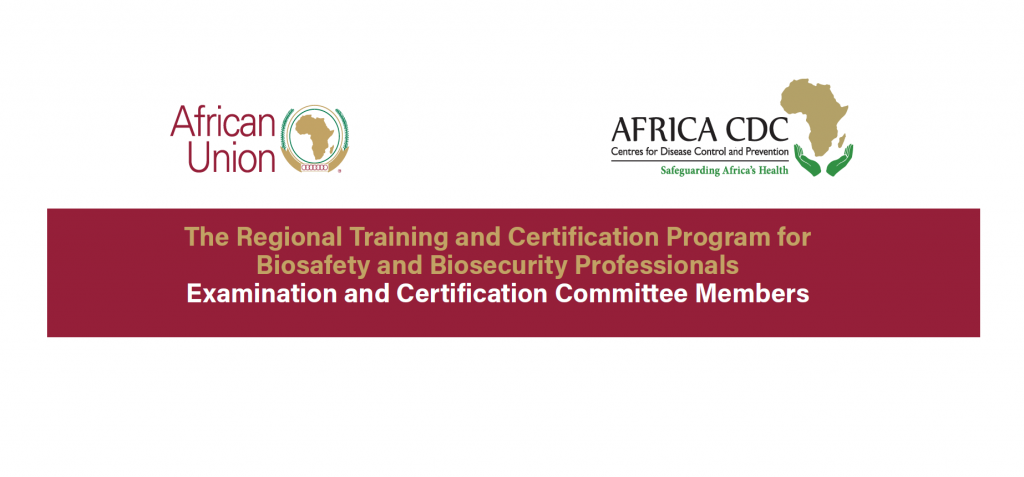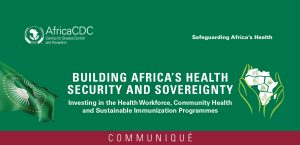In May 2019, Africa CDC in collaboration with Africa Union Member States and its regional and international partners launched the Biosafety and Biosecurity Initiative whose goal is to strengthen the biosecurity and biosafety systems of African Union Member States to comply with the International Health Regulations (IHR) (2005), the Biological Weapons Convention (BWC), and United Nations Security Council Resolution (UNSCR) 1540. To ensure coordinated implementation, Africa CDC developed a Biosafety and Biosecurity 5-Year Strategic Plan with five priority areas, one of which was the establishment of locally developed, regionally endorsed, accessible and sustainable Regional Training and Certification Program for Biosafety and Biosecurity Program. Graduates will be enrolled into the Africa Union Register of Biosafety and Biosecurity Experts.
On the 12th of April, the then Director of Africa CDC, Dr John N Nkengasong together with his Excellence, Ambassador of Canada to Ethiopia, Robin Stephane officially launched the Regional Training and Certification Program for Biosafety and Biosecurity Professionals. To ensure maintenance of high quality of training and independent oversight, an Examination and Examination Committee (ECC) was established. Among its roles is to ensure standardization, alignment with international standards and ensure visibility and wider recognition of the training and certification program.
The ECC is composed of subject matter experts with diverse professional backgrounds and experience in one or more of the areas of specialization of the training and certification program. The ECC roles and responsibilities include:
- Coordinating the review and updating of the Regional Training and Certification Program framework and curriculum in line with current regional and international standards in biosafety and biosecurity. The ECC shall ensure the training and certification program remain relevant in addressing the needs of the AU Member States
- Coordinating and approving examinations and competency evaluations including reviewing examination questions, competency evaluation tools and methods of delivery in collaboration with the ASLM Academy
- Reviewing portfolios submitted by trainees and recommending appropriate certification levels for the Intermediate (Level 2) and Expert (Level 3). The portfolio will include improvement project reports, completed competency evaluation forms, Continuous Professional Development (CPD) reports among others as deemed necessary by the Council
- Reviewing of portfolios submitted by applications for certification through the “Alternative Pathway.” The ECC shall recommend to Africa CDC and ASLM the certification level equivalent to the training and experience of the applicants
- Ensuring the African Union Register for Biosafety and Biosecurity professionals is up to date and shared widely and publicly for reference by African Union Member States In collaboration with the ASLM Academy
- Receiving and addressing complaints and queries related to the training and certification program in the areas of the curriculum, its delivery, selection of candidates, certification, examinations and competency evaluations. The Council shall ensure complains and queries are addressed, and feedback provided with agreed turnaround times as will be set by the Council.
On 22-23 June 2022, Johannesburg South Africa, the ECC was officially launched during its inaugural meeting. The first cohort of graduates is expected to be enrolled in August 2022 through the Regional Centre of Excellence for Biosafety and Biosecurity (RCoEBB) – Southern Africa







